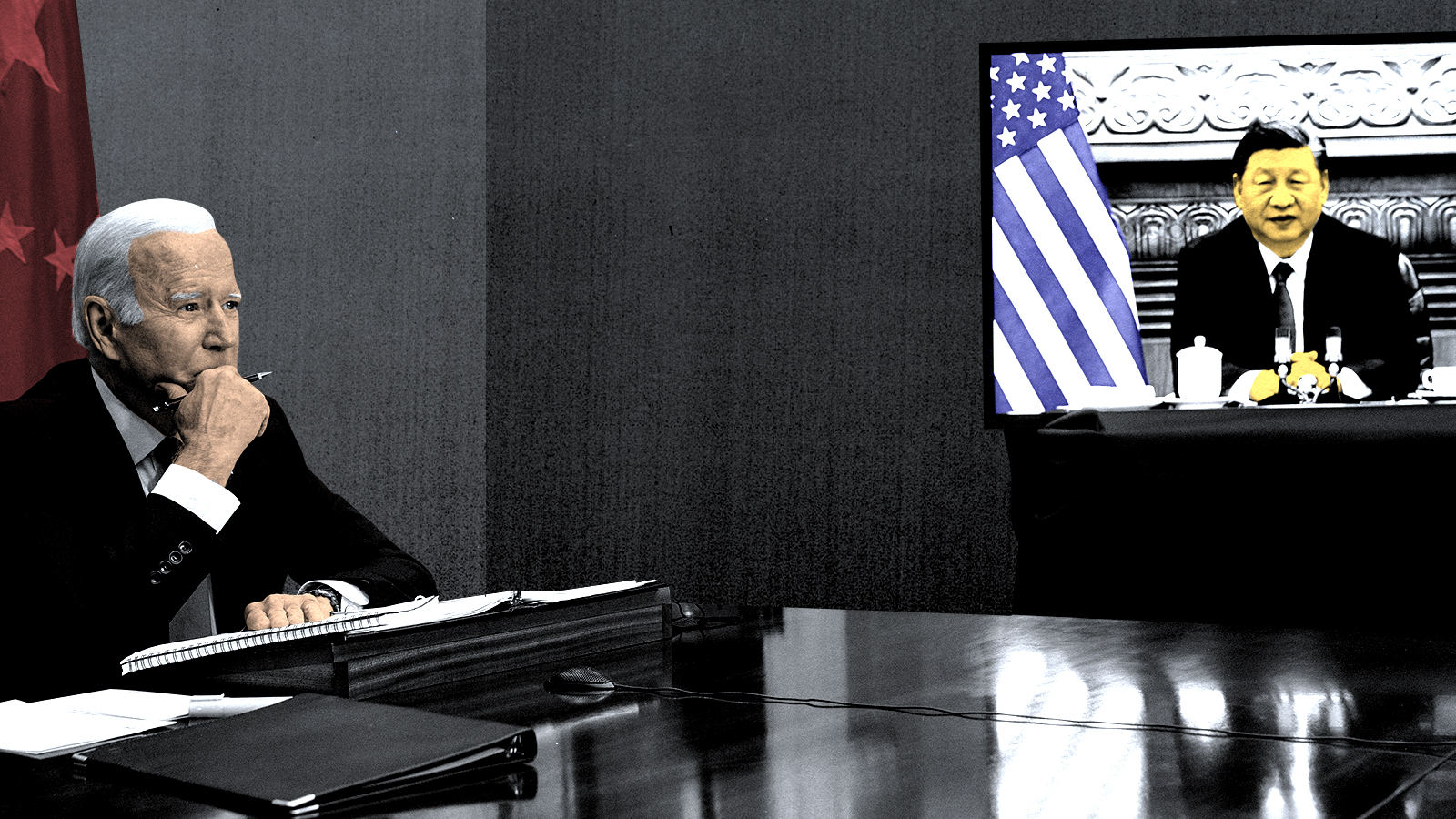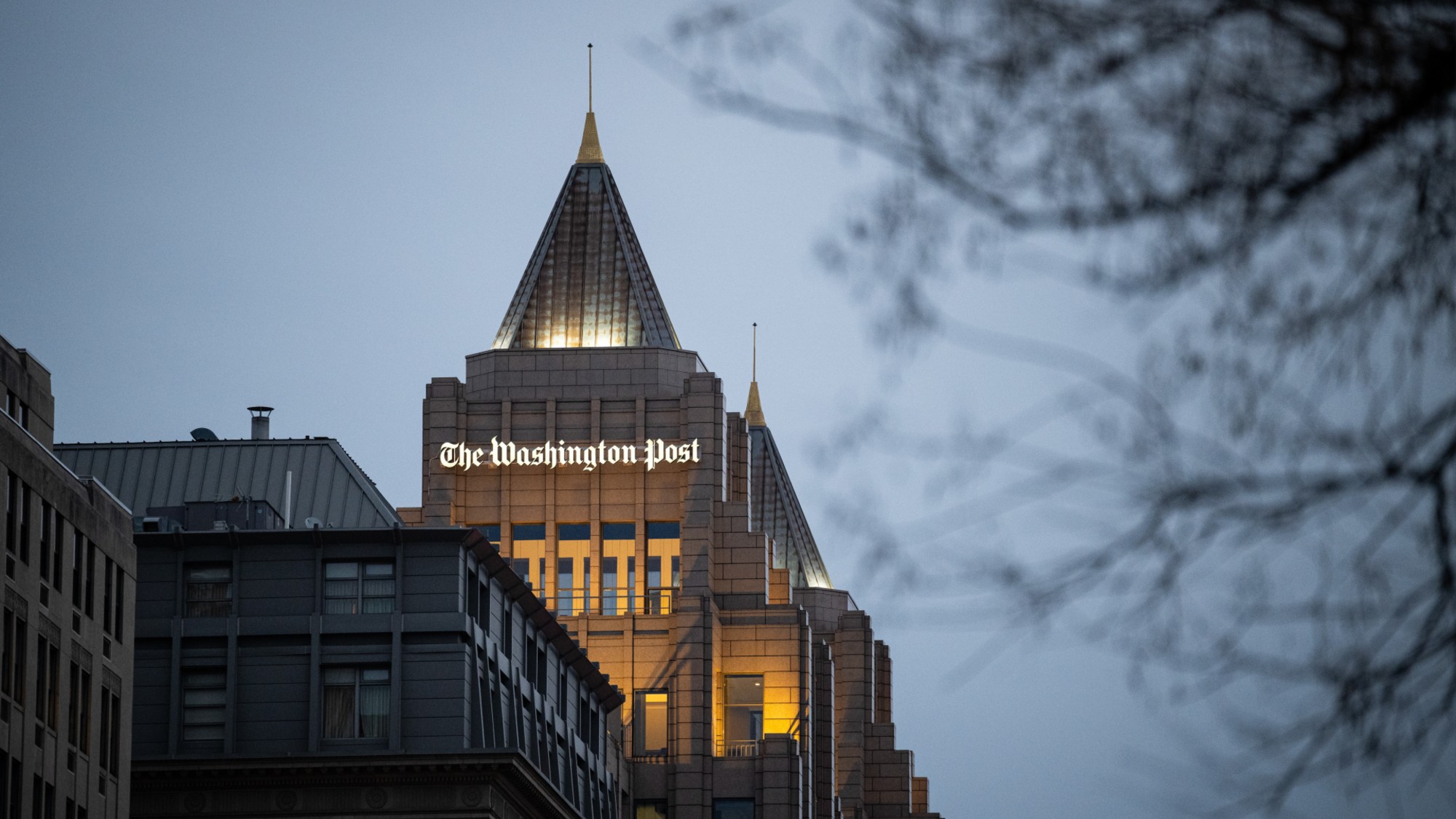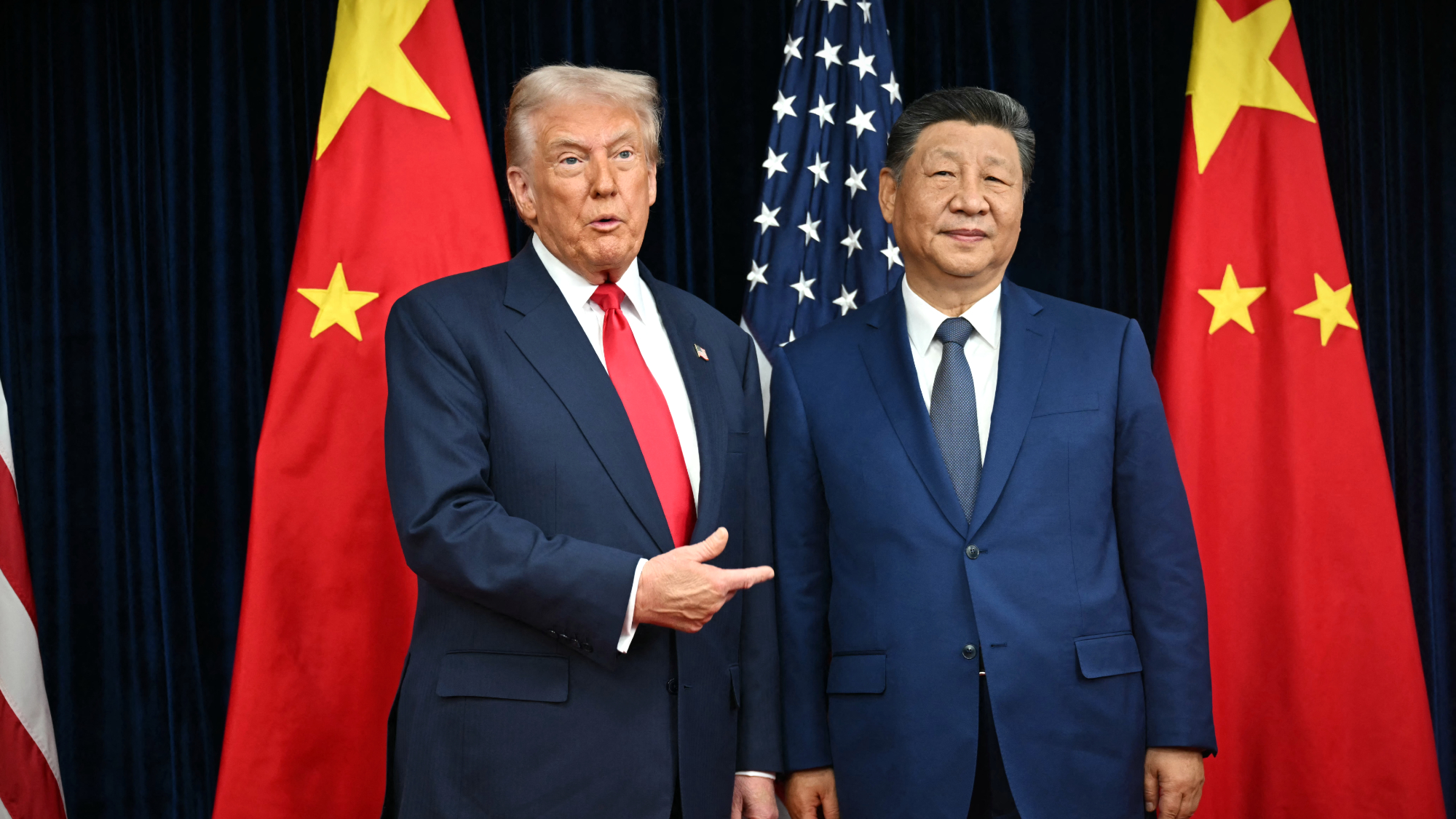Biden's promise to defend Taiwan
The sharpest opinions on the debate from around the web


A free daily email with the biggest news stories of the day – and the best features from TheWeek.com
You are now subscribed
Your newsletter sign-up was successful
President Biden said Monday that the U.S. would defend Taiwan if China attacked militarily. "That's the commitment we made," Biden said. Biden reaffirmed the One China policy under which the U.S. formally recognizes only one Chinese government — the one in Beijing — but doesn't accept China's claim over Taiwan as a breakaway province, instead maintaining close unofficial ties to the islands' government. But Biden said "the idea that [Taiwan] can be taken by force, just taken by force, is just not appropriate," particularly as the world rejects Russia's invasion of Ukraine.
China promptly expressed its "strong dissatisfaction and firm opposition" to Biden's remarks, saying he was interfering in China's "internal affairs." The White House tried to smooth things over by saying Biden was merely restating a longstanding commitment under the 1979 Taiwan Relations Act to provide Taiwan with what it needs for self-defense. On Tuesday, Biden said his policy toward Taiwan had not changed, suggesting that Washington's "strategic ambiguity" on how far it would go to protect Taiwan remained in place. Does Biden need to talk tough to discourage China from making a move on Taiwan, or is he escalating tensions unnecessarily?
Biden is right to defend Taiwan
Biden has to stand up more forcefully for Taiwan, says Henry Olsen in The Washington Post. The policy of strategic ambiguity worked fine for a long time, but "Chinese President Xi Jinping's increasingly aggressive behavior" in the Pacific "makes the policy untenable." Taiwan is at a "flashpoint" similar to Ukraine's in Europe, pitting the U.S. against an "autocratic power." If Washington had abandoned Ukraine "in its time of need, our European allies — who recognized the threat a Russian-conquered Ukraine would pose to their security — would question our commitment to them. So it is with Taiwan; if the United States won't defend a longtime, democratic friend, other allies in Asia would call our commitment into question."
The Week
Escape your echo chamber. Get the facts behind the news, plus analysis from multiple perspectives.

Sign up for The Week's Free Newsletters
From our morning news briefing to a weekly Good News Newsletter, get the best of The Week delivered directly to your inbox.
From our morning news briefing to a weekly Good News Newsletter, get the best of The Week delivered directly to your inbox.
Biden is only stoking tensions
The vagueness of the traditional U.S. position on Taiwan "helped deter China from invading Taiwan while also helping deter the self-ruled island from declaring full independence," says David Smith at The Guardian. Biden says he hasn't changed the U.S. policy, but this is the third time he has said the U.S. would come to Taiwan's defense, so this was no "gaffe." Biden clearly isn't comfortable leaving any doubt over the U.S. willingness to defend Taiwan militarily. He apparently wants China to consider Russia's "disastrous" invasion of Ukraine, and see that it would have no "cakewalk" in Taiwan, either, because of "the resolve and unity of the west." But by rocking the boat he's only causing confusion and increasing already high tensions across the Taiwan Strait.
If anything, Biden should be tougher
Knowing the U.S. and its allies would intervene to protect Taiwan "may give Chinese President Xi Jinping some pause about the costs of an invasion," says The Wall Street Journal in an editorial. But defending it would cost us, too. China has built a military capable of overwhelming Taiwan's defenses by air and sea, and blasting U.S. airfields and ships in the region with missiles. Biden's budget will shrink the Navy to 280 ships in 2027 from 298 today, while China's fleet expands. He'll have to spend more for "a credible defense of Taiwan." And Biden blew it by not including Taiwan in the 13-nation Indo-Pacific Economic Framework he announced this week. Excluding Taiwan, an "economic powerhouse," makes "no sense if you're trying to show the U.S. commitment to the region."
A free daily email with the biggest news stories of the day – and the best features from TheWeek.com
Harold Maass is a contributing editor at The Week. He has been writing for The Week since the 2001 debut of the U.S. print edition and served as editor of TheWeek.com when it launched in 2008. Harold started his career as a newspaper reporter in South Florida and Haiti. He has previously worked for a variety of news outlets, including The Miami Herald, ABC News and Fox News, and for several years wrote a daily roundup of financial news for The Week and Yahoo Finance.
-
 The environmental cost of GLP-1s
The environmental cost of GLP-1sThe explainer Producing the drugs is a dirty process
-
 Greenland’s capital becomes ground zero for the country’s diplomatic straits
Greenland’s capital becomes ground zero for the country’s diplomatic straitsIN THE SPOTLIGHT A flurry of new consular activity in Nuuk shows how important Greenland has become to Europeans’ anxiety about American imperialism
-
 ‘This is something that happens all too often’
‘This is something that happens all too often’Instant Opinion Opinion, comment and editorials of the day
-
 The ‘mad king’: has Trump finally lost it?
The ‘mad king’: has Trump finally lost it?Talking Point Rambling speeches, wind turbine obsession, and an ‘unhinged’ letter to Norway’s prime minister have caused concern whether the rest of his term is ‘sustainable’
-
 ‘It may portend something more ominous’
‘It may portend something more ominous’Instant Opinion Opinion, comment and editorials of the day
-
 The billionaires’ wealth tax: a catastrophe for California?
The billionaires’ wealth tax: a catastrophe for California?Talking Point Peter Thiel and Larry Page preparing to change state residency
-
 Bari Weiss’ ‘60 Minutes’ scandal is about more than one report
Bari Weiss’ ‘60 Minutes’ scandal is about more than one reportIN THE SPOTLIGHT By blocking an approved segment on a controversial prison holding US deportees in El Salvador, the editor-in-chief of CBS News has become the main story
-
 Memo signals Trump review of 233k refugees
Memo signals Trump review of 233k refugeesSpeed Read The memo also ordered all green card applications for the refugees to be halted
-
 Has Zohran Mamdani shown the Democrats how to win again?
Has Zohran Mamdani shown the Democrats how to win again?Today’s Big Question New York City mayoral election touted as victory for left-wing populists but moderate centrist wins elsewhere present more complex path for Democratic Party
-
 Trump ends Asia trip with Xi meeting, nuke threat
Trump ends Asia trip with Xi meeting, nuke threatSpeed Read Trump had spent the last six days in Asia
-
 Millions turn out for anti-Trump ‘No Kings’ rallies
Millions turn out for anti-Trump ‘No Kings’ ralliesSpeed Read An estimated 7 million people participated, 2 million more than at the first ‘No Kings’ protest in June
